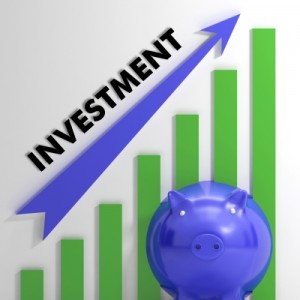Don’t Ask: Should You Pay Off Debt or Invest First?
A search online asking the question “should I pay off debt or invest†is going to yield thousands of results, each with their own opinion on what is the best choice. (OK, I just googled it and there are over 26 million results.) Sadly, if you look at them all, you will not come to a consensus on which is the better choice.
Should You Pay Off Debt or Invest?
For what it is worth, I personally feel that for the majority of people, they are better off paying down their debt. The reason I say this is because while we all may have good intentions, taking money each month and investing it in the stock market, many of us will never do that. We will find other things to do with that money, like buy something or go on a vacation. For this reason, I suggest you are better off paying down debt. But keep reading…
Looking Through a Different Lens: Paying Off Debt is Investing
However, depending on how you define the term investing, you very well might be better off “investingâ€. When you think about investing, you are putting your money in an asset that you believe will grow over time.
If we instead define investing as putting ourselves in better financial shape, we can invest by paying off debt. I’m sure most of you have heard the line that if you have a credit card charging you 18% interest, you should pay it off to realize an 18% return on your money. While you are not technically earning 18%, you are saving 18% of your money because you won’t be paying the interest to the credit card company.
This is essentially investing. You are investing in your debt. Whatever your interest rate is on your debts, by paying it off, you are receiving that interest rate back as savings.
How to Prioritize Your Investments
So going forward, don’t ask whether you should invest or pay off debt. It’s not an either or situation. The only option is to invest your money. You now just have to decide how to invest it. Here is the new process:
- Decide to “invest†your money.
- Create a spreadsheet with all of your debts along with their interest rates.
- Include a list of potential investments, along with their expected returns. For stocks, assume 7%, bonds, assume 4%.
- Re-arrange everything on the list so that the items with the highest interest rates/expected returns appear on top and the lowest interest rates/expected returns appear on bottom.
- Invest in the first item on the list and work your way down.
Real Life Example
Let’s say I have a credit card with 18% interest, a student loan at 7%, a 4% mortgage and I want to invest in stocks, which return 7%. I would list them as follows:
- Credit Card: 18%
- Student Loan: 7%
- Stocks: 7%
- Mortgage: 4%
I would invest in the credit card first, followed by the student loan, and then stocks. All the while, I will continue to make my monthly payment on my mortgage. It’s as easy as that. For those of you reading this that want to take into account taxes on debts such as student loan interest and mortgage interest deductions, you can get more detailed with your investing analysis. For most people however, that is too much detail for them.
It is more important to get in the habit of investing rather than get bogged down with the details. (Note that I am not trying to make is sound like the details are not important, because they are. However, considering the abysmal savings rate this country has, just getting in the habit of saving is more important at this point than trying to figure out if stocks will yield 1% more than student loans after-taxes.)
Final Thoughts
As I alluded to above, it is important that you first get in the habit of saving. By paying of debt, you are learning to budget an amount of money each month to meet a goal. Once your invested all of your money into paying off high interest debt, you can then begin to earmark that money for investing in assets that will grow over time. Are You Focused on Today or Tomorrow?
When we ask the question, “should I invest or pay off debt†we get a case of analysis paralysis because there is so much conflicting information. I suggest you eliminate that step by making everything an investment. You are going to invest you money, whether it be in your debt or in new assets. Either way, you are setting yourself up on a course to reach your financial goals.






I like your thinking. People need to view debt and savings in the manner you’ve outlined. One other thing is that people have to stop going into debt in the first place. That involves putting a budget together, living below their means, and saving to purchase items.